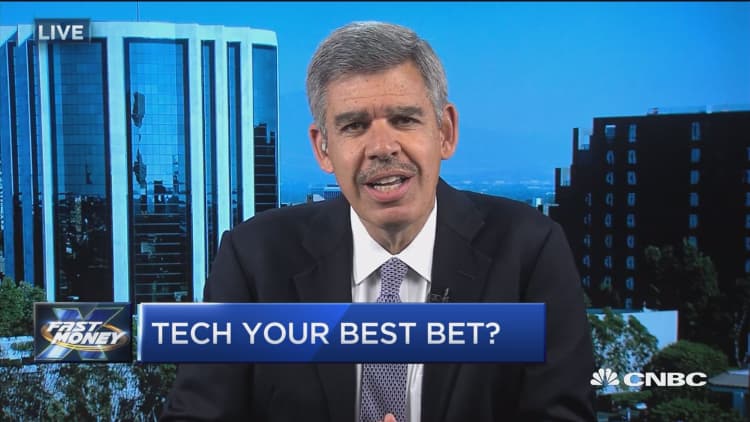The state of the markets as earnings season begins: are we really overpriced?
Earnings season begins this week in earnest, with reports from Bank of America, IBM and Visa, among others. But there is a growing chorus of voices insisting that the market is topping out. The worries revolve around four main complaints: 1) The bull market is eight years old, few bulls have lasted longer and it is reaching the end of its lifespan, 2) The Fed will have a tougher time than anticipated managing the reduction of its balance sheet and increasing rates, 3) Political developments (lack of progress on tax cuts) are already slowing the advance of the markets and 4) The stock market, particularly technology, is overpriced.
Let's just tackle the idea that the market is somehow overpriced. Stocks are at historic highs because earnings are at historic highs and the global economy is improving. It's that simple.
But is the market overpriced? The most important determinant of stock prices is forward earnings estimates. According to JP Morgan, the forward price/earnings ratio for the S&P 500 is 17.5, which is slightly expensive but well within historic norms. The 20-year average is 16.
Even the complaint that technology stocks are too expensive doesn't ring true — as a group technology stocks are below their historic average P/E. Thee forward P/E is 17.9 versus the 20-year average of 20.8.

What's the bottom line? Goldman Sachs — not exactly known for going out on the limb on valuations — had this to say to clients yesterday: "Although P/E ratios have expanded from 2007 high levels, they are not a source of risk by themselves, in particular in the near term if volatility remains anchored. We expect good EPS growth across regions could drive new equity highs and help lower P/Es."
Amen. Of course, there are pockets of the market that are indeed expensive. I'll give you two examples.
Apple is trading at 16 times forward 12-month earnings. That's at the high end of where it has been for the past five years. Why? Because every analyst on the street has a buy on the stock and has convinced the world we are in the middle of some kind of supercycle for the upcoming iPhone 8. Maybe, but is it worth the 30 percent gain we have seen this year? That seems stretched to me.
Even worse is the situation for Energy stocks, which are way above their historic averages. The forward P/E for the energy group is 26.3, versus 17.4 for the 20-year average, JPMorgan said.
Yikes! Energy stocks are 50 percent higher than their P/E values. Analysts have really got ahead of themselves on energy because— once again! — no one has been able to accurately forecast the price of oil. At $40 to $45 a barrel it is far below typical projections of $60 that were made earlier this year. That's why the prices of oil stocks — and earnings estimates — have been coming down.
ExxonMobil, for example, was supposed to earn 99 cents a share for the second quarter. But that was on April 1 —a lifetime ago. Now that oil isn't rallying, the estimates have come down to 85 cents a share...and they're still going down!
Bottom line: there are pockets of the market that are arguably overvalued, but the S&P itself is only modestly stretched.
As for the imminent end of the bull market so greatly feared, I will once again give Goldman the final word: "We don't see the end of bull market as long as the macro backdrop remains supportive with global growth above trend and low recession risk while central banks remain accommodative. And while global equities are at new highs, so are earnings."
WATCH: Get bullish on these three stocks



